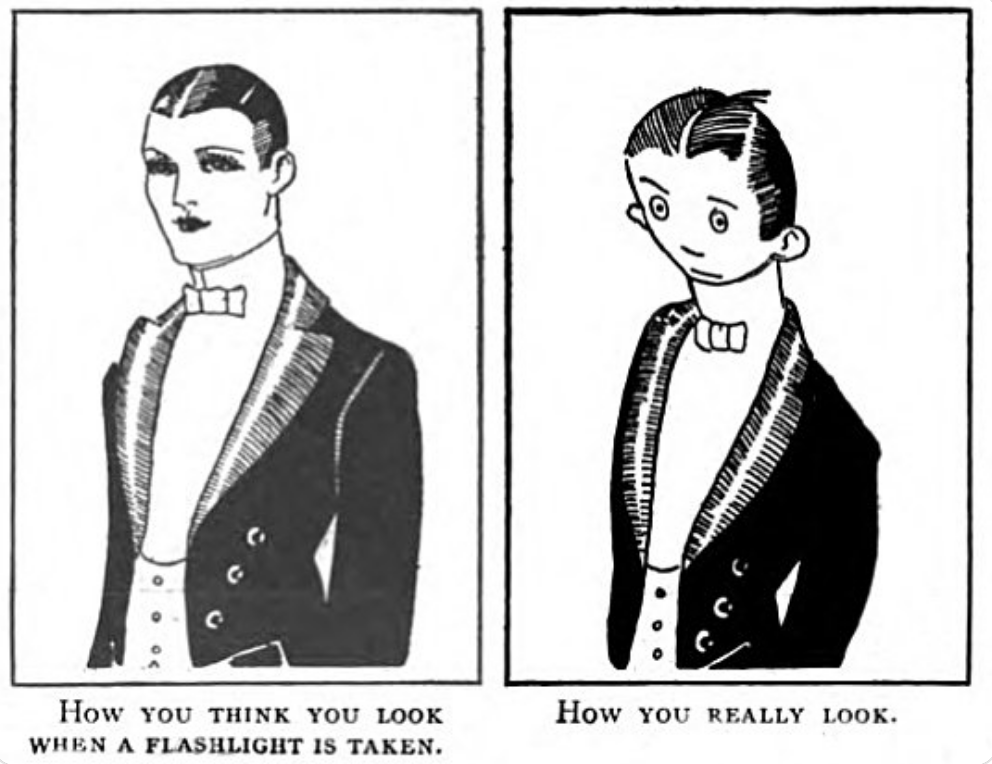Memes. What are they, and why they're a part of internet culture? The definition of a meme stems from Richard Dawkins, who coined the term in his 1976 book titled the Selfish Game, which he described a meme as a mean to explain how information throughout the Internet culture. This concept has lead to a series of Internet memes whether it is in a still photo or audio or video form.
The first-ever meme in a pre-internet era dates back to 1921 where this meme is displayed on Judge Magazine. Another example is the Keep Calm and Carry On poster that was commissioned in 1939 by the Ministry of Information in England that is still around in the post-internet era and was found through the online and offline.


Flash forward to the early Internet days where the term "meme" wasn't even used as people referred to it as image macros. Until those image macros appeared across the Internet and repurposing the term "meme" has emerged. From the year 2008 where memes began surfacing from the deep onto the mainstream Internet culture to the year 2010 where they became mainstream in real-life culture. Internet memes are typically humorous, satirical, or ironic, becoming a part of what makes them appealing and encourages people to spread them.
From photos to iconic phrases that one catchy song that has been memed to death, memes are powerful and impacted the way we consumed the Internet. I would provide more examples like the Hamster Dance, Rick Roll, Grumpy Cat, and Nicholas Cage but this would be a long post so I wanted to put my focus on the positive and negative sides of memes.
 |
| Imagine if this is the other way around |
The main advantage of a meme is to entertain or make people laugh and smile when they stumbled upon a funny meme. Other than that, it is easy to do and people can duplicate the trends. An example of a positive trend is The Ice Bucket challenge where a person pours a bucket of ice water over their heads and nominate their friends or family members to partake the challenge in the next 24 hours. If they failed to do the challenge, they donate money to ALS. Perhaps this video down below will further explain the phenomenon that is the Ice Bucket Challenge.
Another advantage is that memes are free and can be easily be made viral. A person doesn't need to be an expert or have the technical knowledge to create a meme, they can go to a meme generator website and create their personalized meme. They can share it with their friends, colleagues, or family members or on their social media.
 |
A disadvantage of a meme is it can be annoying for people who had already seen it. One set of meme is enough for them and they don't need to see multiple versions of the same meme. Another disadvantage is that memes are short-lived and don't last too long in the memory. Out of the old, in with the new. To quote Janeene High's article titled, "The Do's and Don'ts of Using Memes in Your Social Media Marketing", with new memes getting created every second, the old ones are phased out rather quickly. And if the meme is based on current events, it can be distasteful and inappropriate to the people affected by that event. Even though it is made to brighten people's spirits and make them forget what's going on with their lives, some people do not like the fact that what they're going through has been memed and becomes a trend for them to forget once it's no longer trending.
 |
The most successful memes not only has a staying power and copied but do these two things better than others are the ones that capture our attention, inspire a sense of belonging and connectedness with the person who shared it, and experiencing sharing and relating to the memes. They emerge out of and resonate with our collective consciousness, and because of this, they reinforce and strengthen social ties and solidarity.
Source;
A Brief History of Internet Culture and How Everything Became Absurd by Nathan Allebach (2019)
Benefits of Meme Marketing
How Does A Song Become A Meme? (VIEWER REQUEST) by MicTheSnare
Meme
Memetics and the Science of Going Viral by Shontavia Johnson
Why Are Some Memes Funny While Others Fall Flat? by Nicki Lisa Cole (2019)
Y No Go Viral: The Emerging Science of Memes by The Atlantic (2013)
No comments:
Post a Comment